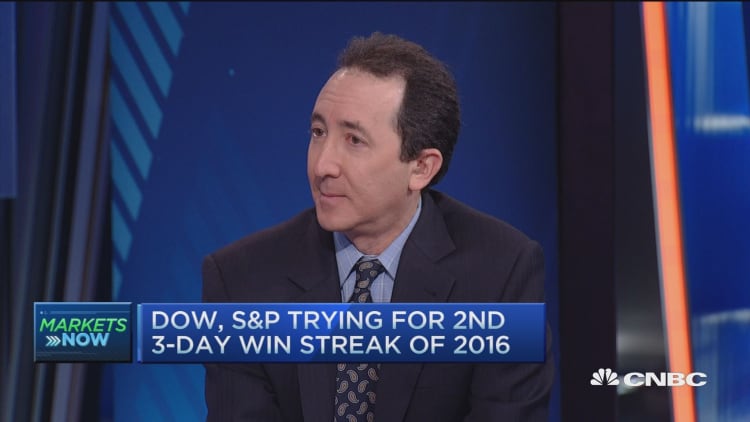
The Federal Reserve may be forced to raise interest rates at an inopportune time as inflation picks up and the presidential elections loom in November, analyst Peter Boockvar said Thursday.
The Lindsey Group's chief market strategist noted that core inflation — which excludes volatile food and energy prices — rose 1.7 percent in January from a year ago. The read on consumer prices moves the Fed closer to its 2 percent target at a time when the economy still looks sluggish, Boockvar told CNBC's "Squawk Box."
"The Fed's now being painted into another corner," he said. "We're at their year-end target in terms of the PCE inflation number, and they've been hiding behind that as license to continue to ease, or at least not tighten."
The Fed's policymaking committee meets later this month to decide whether to hold interest rates steady or continue tightening monetary policy following its first rate hike in nearly a decade last December. The move ushered in the end to a historic period of easy money policy.
Boockvar said he does not anticipate a hike at the March meeting, but believes the Federal Open Market Committee's statement will be sprinkled with hawkish language that acknowledges the uptick in inflation and lower unemployment.
"It doesn't necessarily mean they'll raise in June, but they're going to tell the markets it's a greater possibility than you're pricing in right now," he said.
With oil prices rebounding and costs in the services sector moving higher, headline inflation — including energy and food costs — could reach 2 percent by the middle of the year, Boockvar said. And if oil continues to rally, prices could rise by 2.5 percent, he added.
That creates an imperative for the Fed to act before elections in November.
If the economy falters, and the FOMC reverses rate increases to support growth, it will face criticism from Republicans that it is handing the White House to the Democrats, Boockvar said.
On the other hand, if the FOMC is seen falling behind the curve and must raise rates, it will have to weather complaints from Democrats, he said.


